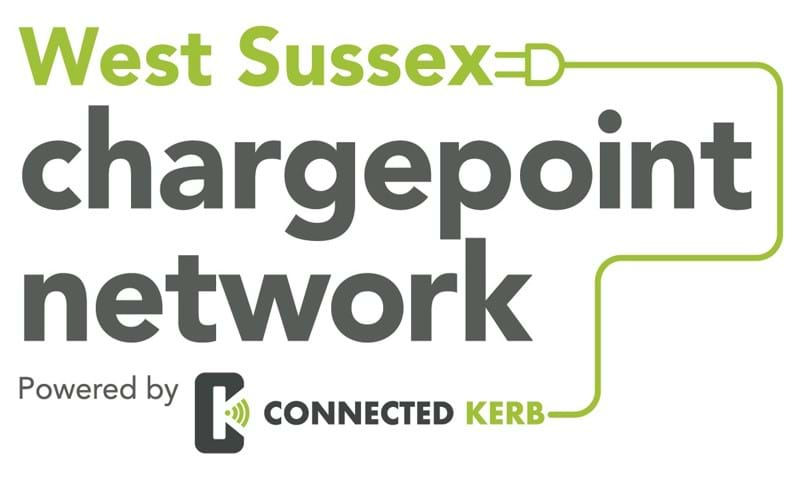1 Overview
Find information about:
- our strategy for supporting the adoption of electric vehicles across the county
- the West Sussex Chargepoint Network
- the grants you can apply for to support you in installing a chargepoint at your home or business
- registering your interest in installing a chargepoint near you.
2 Electric Vehicle Strategy
In December 2019 we approved an Electric Vehicle (EV) Strategy for West Sussex. A Task and Finish Group considered residents' opinions expressed via a resident survey asking what would help people switch to electric vehicles, and a later full consultation on the draft strategy.
The strategy sets out a vision that will enable West Sussex residents, when travelling in a car or small van, to choose ultra-low emission vehicles and travel in a carbon neutral way. To achieve the vision we have three highly ambitious aims.
- 70 per cent of all new cars in the county to be electric by 2030.
- To put a sufficient charging infrastructure in place to support the vehicles predicted to be reliant on public infrastructure chargepoints.
- To ensure a renewable energy source for all chargepoints is enabled by us.
The strategy commits us to:
- enable a charging infrastructure to be installed on our land and on public highways for public use
- engage with partners to enable a charging network that uses all public and community land
- ensure residents and businesses understand the options for and benefits of EV ownership
- make residents and businesses aware of available grants
- demonstrate where residents and businesses can find chargepoints.
Although ambitious, the strategy takes a cautious approach in investing limited County Council funds in this rapidly evolving area. It also recognises that we are not best placed to stay on the cutting edge of technology development. We have therefore appointed the supplier, Connected Kerb, to work with us to deliver our ambition across the county.
3 West Sussex Chargepoint Network
To deliver the ambitions of the strategy, WSCC have formed a partnership with:
- Adur and Worthing District Councils
- Arun District Council,
- Crawley Borough Council
- Horsham District Council
- Mid Sussex District Council.
The partnership went to tender to appoint a supplier partner to work across West Sussex to install thousands of chargepoints across the county within the next ten years on a concession basis, with zero cost to the councils. Connected Kerb won this tender.
If you have any enquiries, please email EVChargepoints@westsussex.gov.uk.
Over the coming months and years, chargepoints will be installed across the county, on streets, in council car parks and at community facilities to form a new West Sussex Chargepoint Network.
This ambitious scheme will give West Sussex residents the confidence to go electric in time for the ban on the sale of new petrol and diesel vehicles in 2030.

4 Register your interest in a chargepoint
We are committed to enabling a comprehensive public charging network with a good geographical spread across the county. However, our focus will be on areas where residents cannot make the switch to electric vehicles without access to a public network, such as people without access to off-road parking.
To help us plan a network that works for you, we want to hear where you’d like chargepoints to be located across the county. This will help us map demand and plan where new chargepoints are needed.
Please note that completing this form does not automatically mean that an electric charging point will be installed at your requested location.
Register your interest (external link)5 Our fleet
In the spring of 2018 we replaced four of our petrol pool vehicles with four electric cars. In mid-2019 two of the vans used by our couriers were replaced with electric equivalents.
We have installed two fast chargers and one rapid charger at County Hall, Chichester, to support these vehicles.
We are assessing the performance of these vehicles to understand the business model to replace further vehicles in future.
6 Owning and driving an electric vehicle
If you currently drive a petrol or diesel vehicle you could save money and cut pollutants by switching to electric.
The distance that electric vehicles (EV) can travel is gradually increasing due to improvements in battery technology.
Electric vehicles:
- pay no road tax (Vehicle Excise Duty)
- benefit from reduced company car tax
- are exempt from the congestion charging scheme if you travel into relevant areas outside of West Sussex.
A hybrid is a vehicle that normally has a diesel or petrol engine and an electric motor.
The Zap Map website provides information about electric vehicles. It has an interactive map showing chargepoint locations and lots of supporting information on charging EVs to help current or prospective EV drivers to make more informed choices.
Find information about common misconceptions about electric vehicles.
7 Funding to help you install a chargepoint
EV chargepoint grant for flat owner occupiers and people living in rented properties
The government Office for Zero Emission Vehicles (OZEV) provides grant funding of up to 75 per cent (capped at £350, including VAT) towards the cost of installing electric vehicle chargepoints at eligible domestic properties across the UK.
The grant is only available to homeowners who live in flats and people in rental accommodation.
Full details are available on GOV.UK.
Funding to help you install chargepoints at work
The OZEV also offers funding to registered businesses, charities, or public sector organisations to pay for the installation of an electric vehicle charging infrastructure at workplaces with dedicated off-street parking for staff and/or fleets. The Workplace Charging Scheme is a voucher-based scheme, designed to provide eligible applicants with support towards the upfront costs of the purchase and installation of electric vehicle charge points.
The grant contribution is limited to £350 for each socket, up to a maximum of 40 sockets per company.
Workplace Charging Scheme and application form (GOV.UK) (external link)
